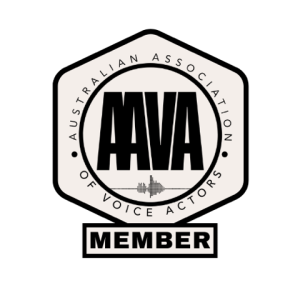‘AI’ versus the ‘Human Voice’ in Voiceover
The nature of AI and how it may affect the voiceover industry in the short to long-term, is something we all need to become more educated about.
My research tells me that the ‘high end’ of advertising, where the most engaging, entertaining work is created – and where all the big bucks are – has not been affected.
This is because the creative professionals working in advertising have historically cast a voice artist who has the skills to work in collaboration with them.
I call this ‘the collaborative triangle’ where you’ll work in a recording studio, or from a home studio with the producer and engineer, to achieve a satisfying result.
I can’t see this changing. Because talking to any advertising creative I work with, I get the same response.
“We don’t want to use AI for voiceover. We want to work with a human.”
That’s the good news!
But I’ve been thinking about one area that is using AI. And that is the lower end of some markets, start-ups and lower budget messaging. For this cohort, budget is their consideration, which is why they’re looking for a voice this way.
And because of those lower budgets, they can only afford budget priced AI, so what they’re are being offered is still recognisable as ‘not a human voice’. It often lacks the authenticity, warmth and emotional variations that a human voice can offer.
Sometimes, they’ll regret their decision 🤷🏻♀️
And this is not-so-good-news!
I know that many lower budget producers and advertisers are still using online platforms to find a human voice for their project. It’s because they want a real voice for their job.
I also know many who are just starting out in voiceover have been submitting auditions to these platforms, with little to no success. When they tell me this, I ask them to send me samples of their auditions.
And straight away, I can hear why it’s not working for them. It sounds as though the person is just ‘reading words’. It just doesn’t sound believable. Because what’s missing is that unmistakable authenticity of a human voice
Sometimes, it even sounds like a bad AI 🤦🏻♀️
Let’s solve the problem
When I’m coaching those getting some VO’s but want more work, and beginners wanting to start getting work in voiceover, I can hear that the struggles they’re having are all about technique.
Knowing the techniques for converting your ‘written’ word scripts into ‘spoken word’ language that sounds like you’re just making it up as you go along, is one of the most important voiceover techniques.
The next is knowing the techniques for how and when to vary your read, give it the personality in needs, and offer options for the final edit.
In this time of ‘the AI affect’, it’s ‘technique’ that we need to become more educated about.
So, if you’re ready to up-the-ante on the way you approach voiceover scripts and understand more of the skills and techniques needed to produce natural, authentic human reads, I’m running regular 90 minute ‘livestreams’ that I called ‘Virtual Studio’ that could be just what you need. Click this link for more information
And be part of the movement making sure that ‘human voices reign’.

